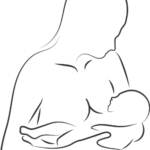Image credit to Pixabay
Arching in Babies To first-time parents, babies may seem to be one big mystery, especially when they all of a sudden do something weird, like arching their back. Your infant might seem distressed or in pain because of this common little motion. And while that could be the case, there are actually many possible reasons why babies arch their backs—most of them completely benign.
Here are some common causes of back arching, from gas and reflux to motor skill development. We will also talk about what to do about back arching in babies.
Is Back Arching Normal in Babies?
You can place back arching in the category of adorable yet weird things babies do, and it’s usually pretty normal, says John S. Maypole, MD, a primary care physician at Boston Medical Center and associate professor of pediatrics at Boston University School of Medicine.
“Babies will arch their back, extending their head and torso, when they are in a normal but heightened state,” he says. Like, when they are crying, excited, surprised, or even stretching their muscles. Babies may also arch their backs while feeding, moving during sleep, reacting to a situation, or with no obvious reason at all, adds Dr. Maypole.
Causes of Back Arching in Babies
You generally don’t need to worry if your baby arches their back. But knowing why they’re making the movement can help you to tune in to their general health and well-being. Here are some possible reasons as to why babies arch their back.
Gas and reflux
If you notice that your baby is arching his back right after feeding, then gas or reflux is probably the culprit. Dr. Maypole says that acid reflux discomfort might be alleviated by some time spent stretching out and moving around. “Likewise, constipation or gas may set babies off arching their backs as they attempt to squeeze out their source of discomfort,” he adds.
According to Anne Marie Tuohy, MD, regional medical director of pediatrics at Bon Secours Pediatrics in Virginia, gas and reflux are very common in babies and rarely represent a cause for concern. Certainly, the entry of too much air while feeding is one cause of gas, which is usually compounded by the immature digestive systems of babies. Moreover, most babies spit up to some degree. According to experts, it’s usually not a problem if your baby is growing well.
That said, if your baby fusses and arches her back after every feeding, it’s a good idea to call your healthcare provider. They may want to investigate issues such as food allergies and gastroesophageal reflux disease (GERD).
Motor Skill Development
As babies build up their muscles and get around, they may arch their backs more frequently, particularly when they’re trying to roll over. “Tummy time may elicit entirely appropriate back arching,” says Dr. Maypole. For instance, 4- to 6-month-old babies often throw their heads backward and arch their backs to move all four extremities. “It’s pretty adorable, really, but it can help build up those core muscles that will later help with sitting and standing,” he says.
Expression of emotion
Babies could arch their back whenever they are over-stimulated, hungry, frustrated and feeling uncomfortable. They are expressing emotion the only way they know how which is through body movements. “Babies who are overtired or overstimulated also may cry for a prolonged period,” says Dr. Maypole.
Colic
Colic is when healthy babies cry inconsolably for more than three hours per day, at least three days per week, for more than three weeks. Infants with colic might arch their backs. Other signs of colic include stiffening their arms and legs, clenching their fists, passing gas, crying with high-pitched sounds, and pulling up their legs. Colic usually goes away around 3 to 4 months of age.
Also Read : Essential Oils Around Your Baby
Neurological concerns or seizures
While back arching is not usually a cause for concern, there can be times when it could indicate something more serious. According to Dr. Tuohy, babies with neurological concerns, like cerebral palsy, may arch their backs due to increased muscle tone. Other symptoms of cerebral palsy include failure to meet developmental milestones.
An arched back could also be a sign of seizures, although that is quite rare. “If parents noticed their baby had difficulty not arching, or if they noticed stiffness in their baby’s arms or legs or abnormal eye movements, it would be important to evaluate for seizures,” says Dr. Maypole.
What To Do About Back Arching in Babies
Arching of the back is, in most cases, a means of communication. “Back arching in and of itself is not typically a concern and does not need to be prevented,” Dr. Maypole says. However, if parents take the time to investigate why it is happening, they can often help to alleviate whatever is causing discomfort and calm the baby.
If you find your baby arching their back, the very first thing that must come to mind should be doing a quick run-through of what could be wrong. Are they hungry? Suffering from reflux? Feeling uncomfortable? “Try to address any underlying problem, or avoid positions or situations that might promote the baby’s discomfort, says Dr. Maypole.”.
Keep in mind that sometimes you won’t find a discernible cause. “Younger babies may have repeated or lengthy episodes of back arching and fussiness for no discernible reason,” says Dr. Maypole.










